Latest News

Dealing with a breast cancer diagnosis is a stressful experience, with lots of emotions to process, multiple professionals to deal with, appointments to arrange and physically challenging procedures.
It also brings with it some extra ‘personal admin’. Filling in forms to claim benefits, allowances and subsidies from health and community service providers can just add to the burden and seem overwhelming. Many report that interacting with health insurance companies can be particularly challenging.
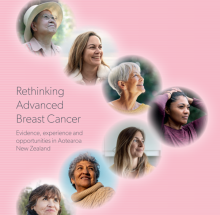
BCAC welcomes new research published today by Breast Cancer Foundation NZ that shows that despite gains in survival and treatment for Kiwis with advanced breast cancer (ABC), serious gaps in care remain. Among the key findings is the lack of a standardised, nationwide approach to detection and diagnosis, leaving too many patients with fewer treatment options and a poorer quality of life.

‘De-escalation’ - reducing surgery, radiation and even medicines when treating low-risk breast cancer – was discussed in depth at the recent San Antonio Breast Cancer Symposium (SABCS).
Breast cancer treatments can have significant long-lasting side effects and there is a big international research push to find out if less treatment can be given without compromising safety or effectiveness.
In his presentation on treating low-risk* early-stage hormone receptor positive (HR+) breast cancer, Professor Icro Meattini from the University of Florence asked the question ‘Radiation therapy or endocrine therapy: which one to omit?’
(*Low-risk typically means a small, low-grade tumour, clear margins after surgery and no cancer in the axillary (armpit) lymph nodes.)
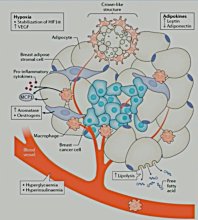
Obesity after menopause increases our risk of breast cancer, but what are the mechanisms behind this?
US researcher Dr Kirsty Brown gave a great overview of how obesity and breast cancer interact at the cellular level at the December 2025 San Antonio Breast Cancer Symposium.
In post-menopausal women, the risk of breast cancer increases by 10% for every 5 BMI units above 25. The evidence for a link with obesity is greatest for oestrogen receptor positive (ER+) breast cancer.
Obesity changes the breast microenvironment
Breasts have a lot of fatty tissue and obesity-related changes to that tissue can change the breast microenvironment, making it more favorable for tumour growth.
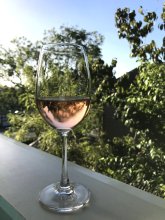
There is a well known link between alcohol consumption and breast cancer risk, but can you reduce that risk by stopping or reducing your drinking?
Dr Mary Beth Terry addressed this question at the 2025 San Antonio Breast Cancer Symposium, an annual international research meeting that attracts over 9,000 participants each year. BCAC attended in person and online to bring back information of interest to New Zealanders experiencing breast cancer.
Dr Terry said that of the thousands of studies examining the association between alcohol consumption and breast cancer risk, only 17 asked the question ‘what happens if I stop or drink less?’
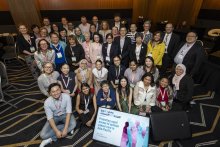
BCAC’s Libby Burgess joined the European Society for Medical Oncology (ESMO) Congress in Singapore, held over three days in December. The Congress brought together researchers, oncologists and patient advocates from across the Asia-Pacific (APAC) region and Europe to learn of breakthrough therapies and to advance local cancer care and research.
Libby filed this report on the Patient Advocate Summit at the Congress:
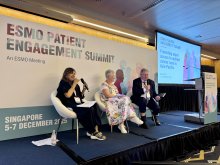
New Zealanders have limited access to breast cancer clinical trials. BCAC’s Libby Burgess was interested to hear how those in other Asia Pacific (APAC) countries fare. Here’s her report on this session at the European Society for Medical Oncology (ESMO) Congress in Singapore.
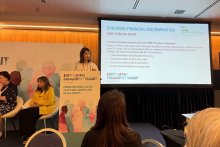
The ‘right to be forgotten’ refers to the stigma that can accompany a cancer diagnosis resulting in unfair treatment by financial institutions, insurance companies and employers.
BCAC’s Libby Burgess learnt more about this at the European Society for Medical Onocology (ESMO)’s recent Asia Pacific Congress.
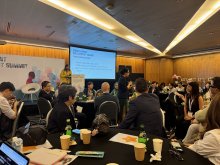
BCAC was pleased to see the topics of sex and fertility being discussed at the European Society for Medical Oncology (ESMO) Congress in Singapore as these are important issues for cancer patients that have not always had the attention that they deserve.
This session follows on from similar presentations at the 2025 Breast Cancer Trials scientific meeting. You can read our report from that meeting on Sexual health after breast cancer here.
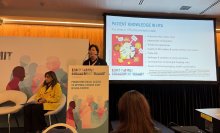
Patient input into the assessment of new medicines by Pharmac is an important topic in New Zealand, and BCAC’s Libby Burgess was pleased to hear from others with similar concerns in other Asia Pacific countries at the European Society for Medical Oncology (ESMO) Congress in Singapore.



